This is a true story.
It happened to me this past week.
Whilst thousands of children, boys and girls, from all over the country were assembled in Ilorin for the National Youth Games, I was trying to play tennis in a social club in one of the State capitals that I was visiting in the course of my nomadic life as a sports consultant.
It was early that morning.
The club was near-empty of people, except for my playing partner and some two ladies and their three children, two of them infants that the ladies cradled by the foyer leading to the tennis courts.
The young ball boys that usually hung around the courts, picking stray balls during games, were not around. I greeted the ladies and asked them if ball boys would still be coming to the club. They responded that most of the boys had gone for the games in Ilorin.
The ladies were both young nursing mothers. There was a third child, no more than 3 years old, who was with them. The ladies wore tee shirts, tight track suit bottoms and tennis shoes.
As soon as my tennis partner and I started warming up for our ‘brawl’, I noticed that the two ladies joined us, one on each end of the court, but behind us, hugging the wired fence.
I was wondering what they were doing there until they started picking the balls straying to the sides and behind us. I was uncomfortable, initially thanked them as they retrieved the balls, thinking they would soon return to their seats to take care of their infants now being looked after by the third child.
At a point I had to stop the warming up exercise to ask them what they were doing picking balls for us.
They are tennis coaches, they tell me excitedly.
That’s interesting. I suggested they should join us in a game of Mixed Doubles rather than the indignity of picking stray balls.
There is a problem with my suggestion.
Pointing at the slightly older of the two, the younger lady announced that the second tennis coach could really not play tennis.
I did not understand that. How could a tennis coach not know how to play tennis? I asked her.
There is a story to it.
Some influential politician got her the job in the Sports Council. The bosses ‘creatively’ engaged her to coach tennis in one of the zones, far from any prying eye of the public or any supervisor. Whilst in her location in one of the local governments, none of the schools had a tennis court, so she neither taught nor learned tennis for almost 2 years, before she was invited back for the National Youth Games.
She was not picked for the games because they realized she did not know much, if anything about tennis. So, a few days ago, they posted her out again but to a new local government.
I was still processing what I had just heard when she landed another bombshell – she was posted to coach another sport.
What sport? I asked her out of curiosity. My heart was in my mouth in anticipation of what would come out of her mouth.
‘Swimming’. She replied.
‘Ah! swim what?’.
I should have listened to my head warning me not to ask any more ‘foolish’ questions. But curiosity killed this cat.
‘Is there a swimming pool in your new location?’. I asked and started to pray. Please God, do not let her tell me there is none. Please Father.
Then it tumbled out.
‘There is no swimming pool’.
Unbelievable. I could not help myself any more but to ask even ‘dumber’ questions.
‘Are you being paid by the Sports Council?’
‘Yes, of course’.
‘Is this your own sport development program in your State?’,’ I ask.
‘Yes o. Sport hardly exists here. We just collect our salaries at the end of every month. No promotion, no vacation. There are no facilities for other sports in this State except for football matches. Most of the other sports do not exist’.
‘So, how did they get the boys and girls that went to represent the State?’. I ask again.
‘Well, only the coaches can tell you that o. Any way only a few sports are involved in the games. The coaches have to find their way and raise a team. Money is provided only at the last minute, and the commissioner collects the allocation, gives whatever he chooses to the Director of sports to manage with the athletes. He does not even attend himself’.
Then, I ask the dumbest question of the day.
‘Can you swim?’.
It comes out of my mouth before I can stop the ‘bloody thing’.
I deserve a slap for asking such a ‘stupid’ question.
How can any sane person post a coach that cannot swim to go and to train young boys and girls in the highly technical sport of swimming?
I waited for her response, afraid she would confirm my greatest fear.
‘No, I can’t swim’.
Ha! Impossible! I ‘passed’ out!
I had been fed enough junk to spoil my appetite for tennis that morning.
The truth stares me in the face. I know that even in some of the more sophisticated States in Nigeria the stories are worse.
There is something fundamentally wrong with governments’ attitude to sports. They do not understand it. They do not appreciate its power to impact and influence society. Sport is the least of their priorities.
Yet, I hear all the time how national federations and even the Sports Ministry are erroneously blamed for the poor state of grassroots sports in the country, forgetting the place of States and Local Governments at the real grassroots.
The National Youth Games was introduced into the Nigerian sports space a few years ago, as a grassroots sports development catalyst.
The Games will drive States to take possession of grassroots sports development because the source of participants in any meaningful organized grassroots sports program is the schools. The schools are controlled by the States. So, the schools and grassroots sports must go together like Siamese twins.
The National Youth Games should really have been named National Schools Games because all participants must be in secondary school at Under-15.
It is an ingenious project designed to serve three broad purposes:
1. Tackle the scourge of cheating through age-falsification by participants
2. Catalyze and enforce the restoration of sports within the schools
3. Create a platform where all the best athletes discovered from schools within each State are assembled to compete for the State, the country and professional clubs, later in their careers.
In the end, and well done, the architecture should produce a win-win situation for sport, schools and the States.
When the best athletes from the schools are assembled into a State team, they become the responsibility of the States Sports Councils.
After the games, the best assembled athletes from the entire competition become the responsibility of the Ministry of Sports for any future international engagements.
The States must wake up and take charge of sports in their domains through the schools. There is no other way. State governments must be in the forefront of grassroots sports development.
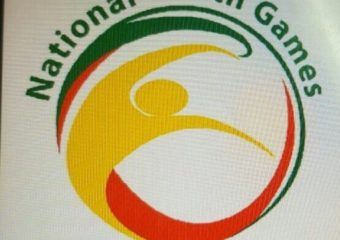
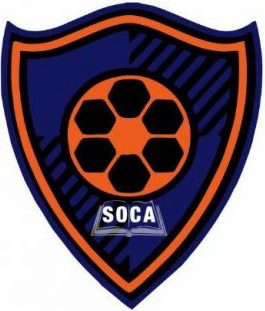
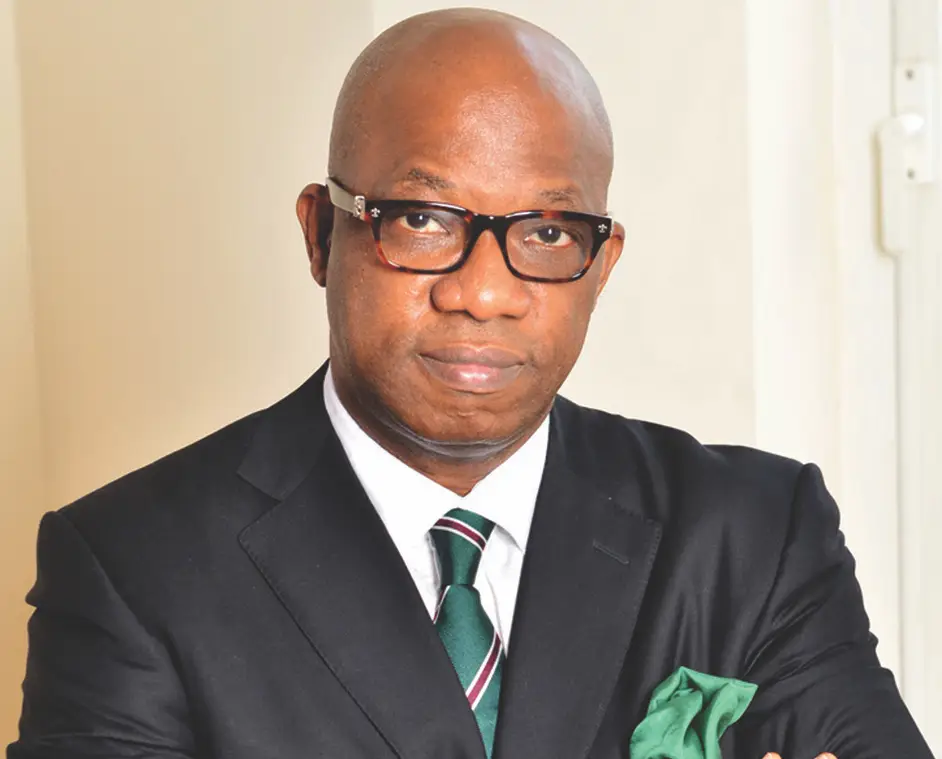

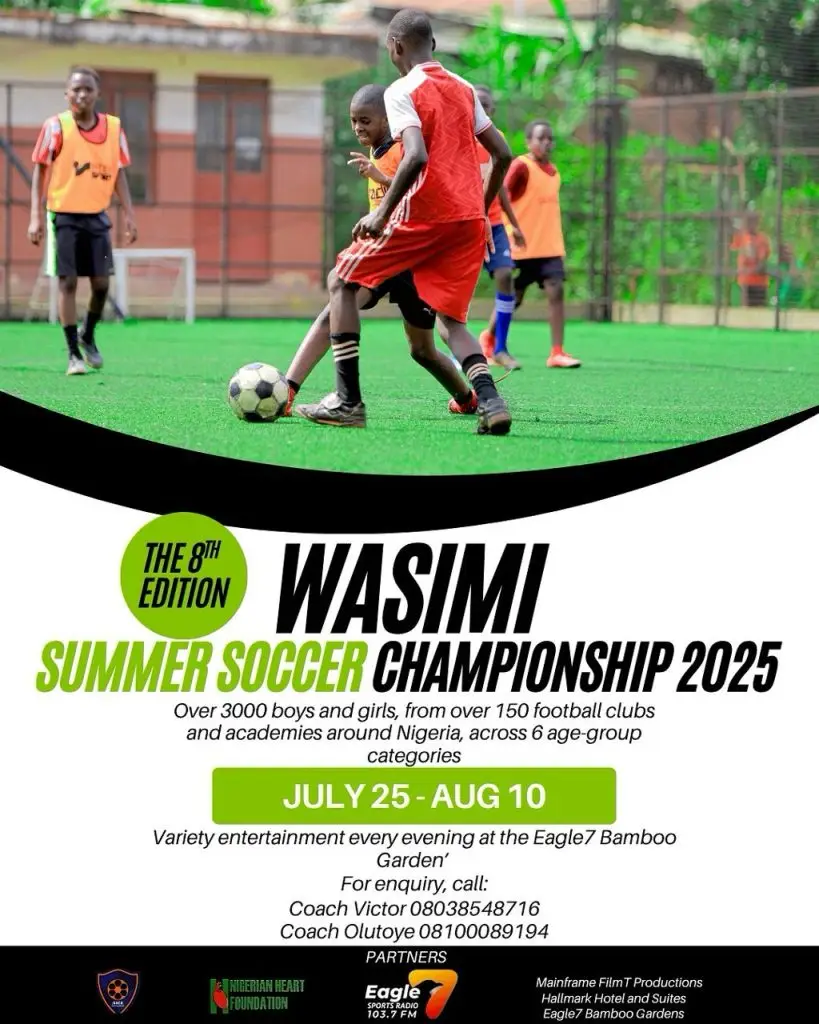
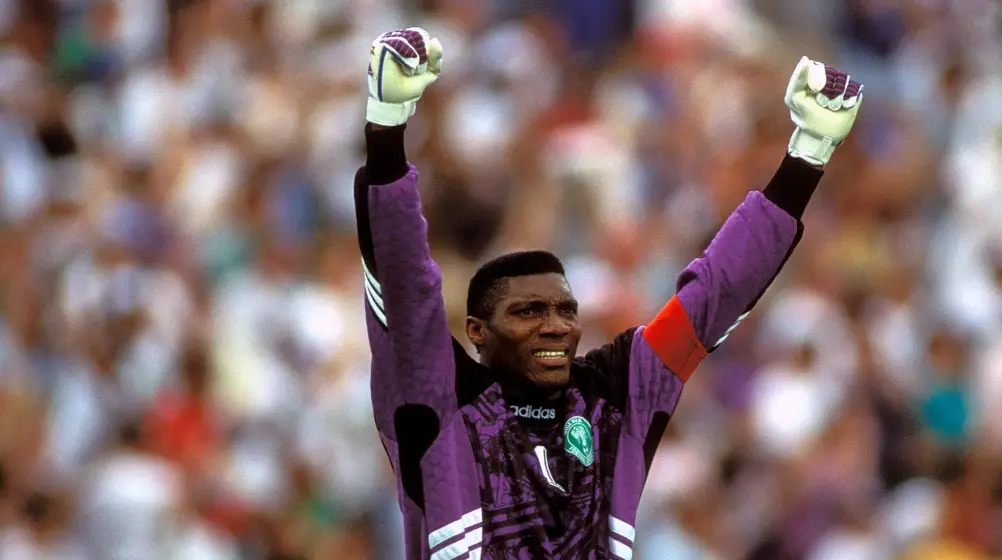



Latest Comments